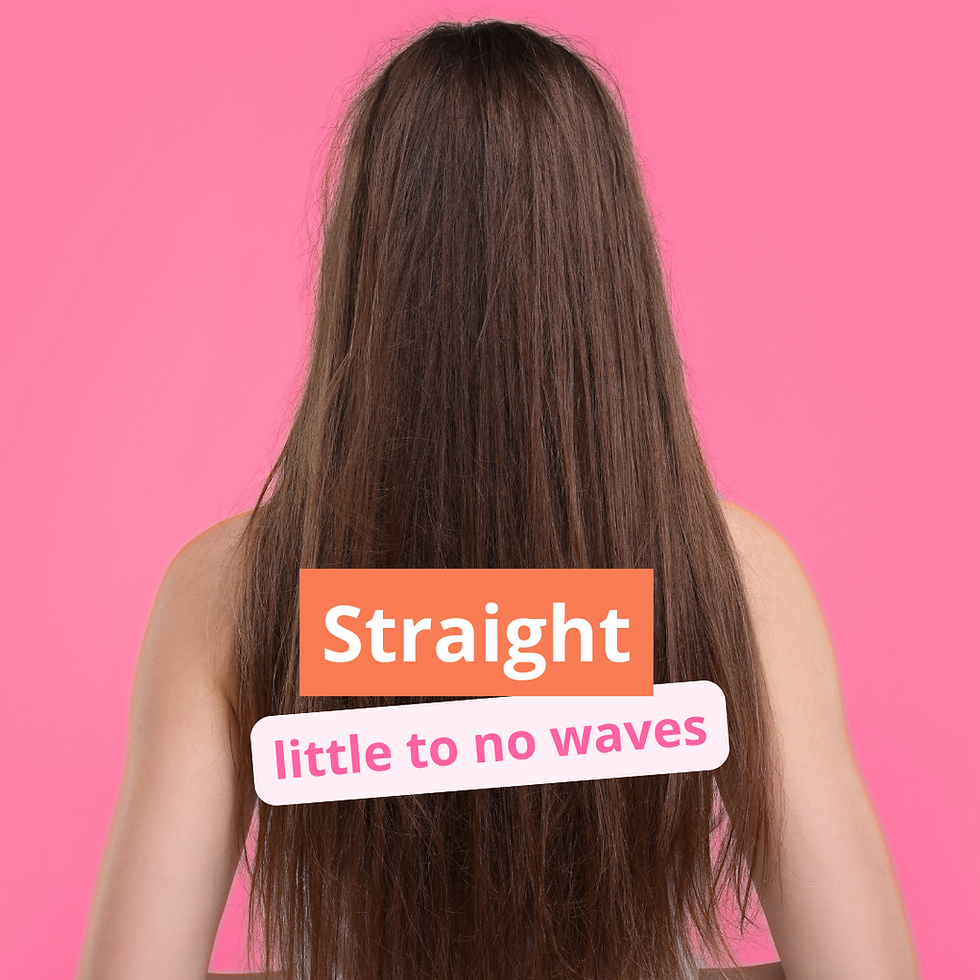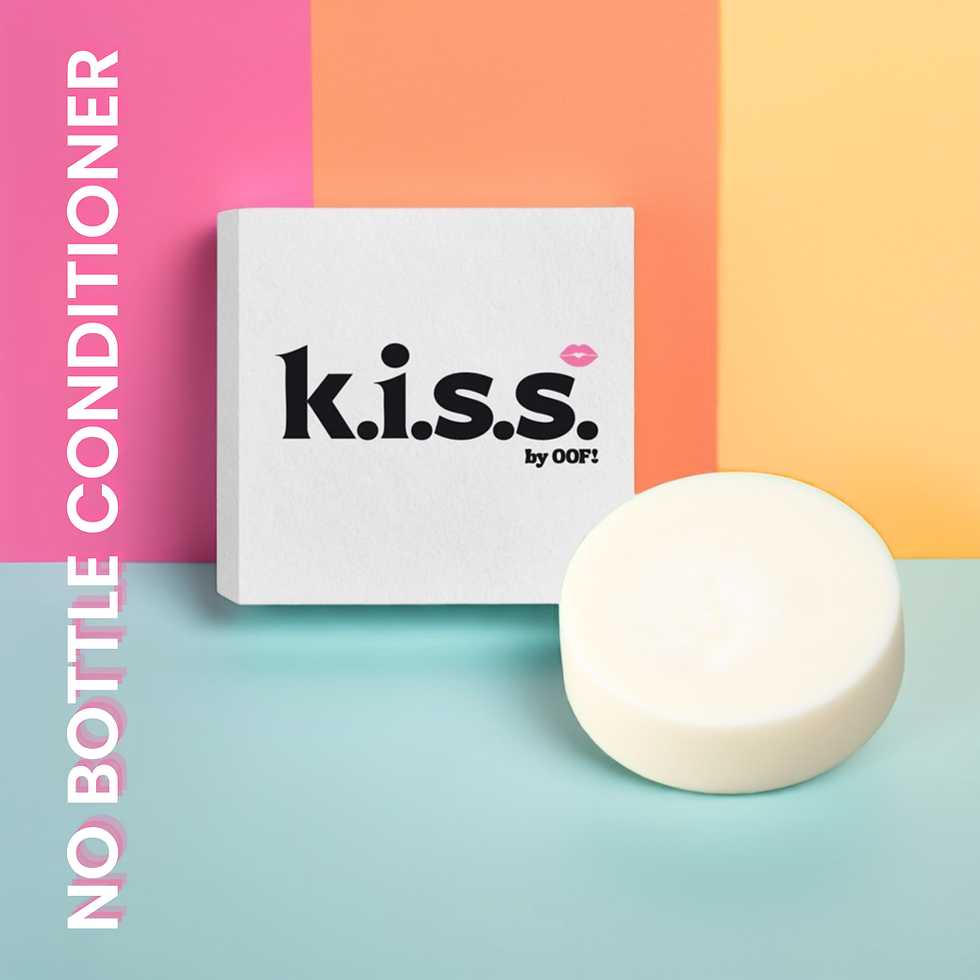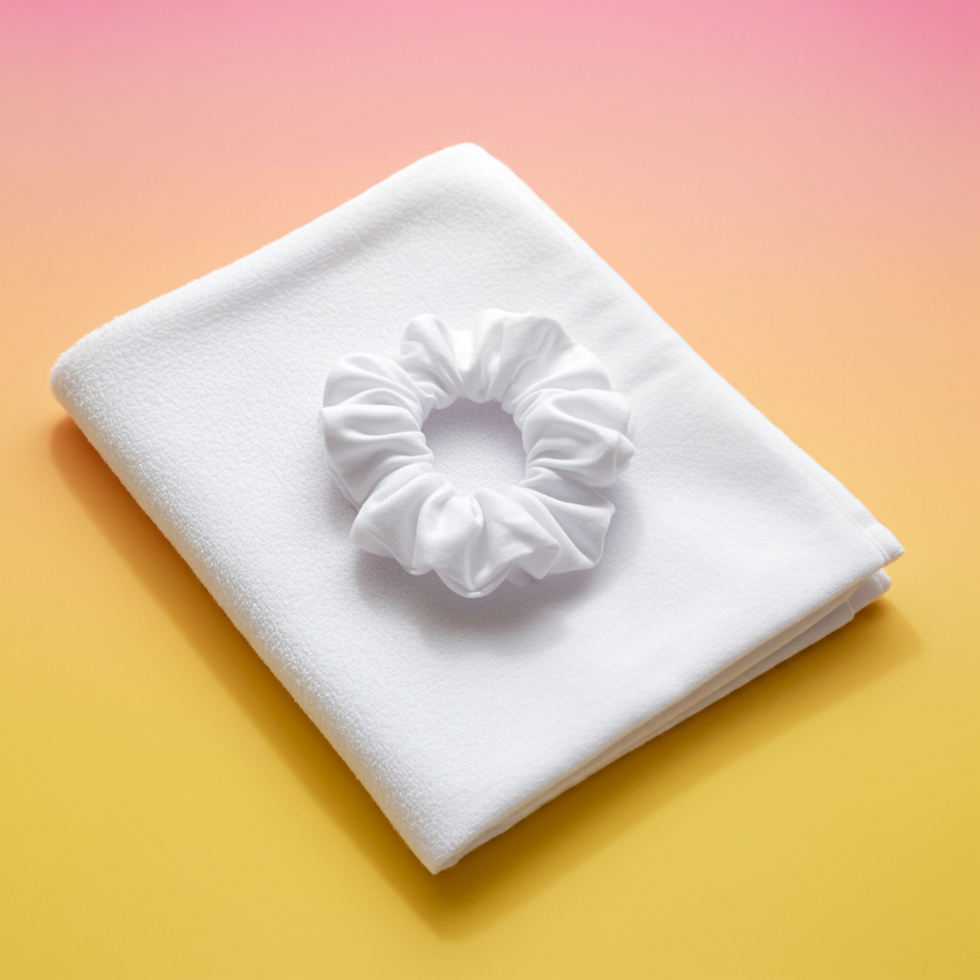Hair Oiling: The Ayurvedic Secret to a Healthy Scalp and Hair Growth
- Apr 30, 2024
- 7 min read
Updated: Oct 23, 2025
Seriously, if you're not hair oiling, what are you waiting for?
Is hair oiling worth all of that effort? Which is the best hair oil for your hair type? For centuries, hair oiling has been a part of beauty regimens globally, with its roots tracing back to ancient Indian Ayurvedic practices.
Hair oiling is great for scalp health and moisturizes and detangles hair while taming frizz. Using natural hair oil provides fatty acids and antioxidants that replenish the lipid layer on the scalp.
There is a LOT of info out there on hair oiling, and finding the right hair oil can be daunting. We've done the research for you.
From scientific research to clinical dermatologist input, we've worked to uncover the science and truth behind hair oiling for hair growth and health.
We'll share the differences between essential and carrier oils, sealing vs. moisturizing oils, and the best hair oils for your curl type.

The Benefits of Hair Oil for Hair and Scalp Health
One of the primary benefits of hair oil is preventing dryness and breakage. By creating a protective barrier, hair oil helps to seal in moisture and prevent damage from external factors such as heat styling and environmental pollutants.
Hair oiling can help to soothe the scalp and alleviate common scalp issues such as dryness, itching, and dandruff.
It can also help to balance the scalp's natural oil production, reducing excess oiliness or dryness. Regular use of hair oil can also improve blood circulation to the scalp, promoting healthy hair growth.
Furthermore, hair oil can help to detangle and soften the hair, making it easier to manage and style.
Essential vs Carrier Oils for Hair Oiling
When it comes to hair oils, there are two main categories: essential oils and carrier oils. Essential oils are highly concentrated oils extracted from various parts of plants.
Essential Oils
Essential oils are not suitable for using directly on the skin because of their high concentration and can cause skin irritation.These oils are typically used in small amounts and are mixed with carrier oils before being applied to the hair and scalp.
Carrier OIls
Carrier oils are derived from the fatty portion of plants. They are used to dilute essential oils. These oils are milder and can be used in larger quantities without causing any adverse effects.
Carrier oils not only help to dilute essential oils but also provide additional benefits to the hair and scalp.

Benefits of Combining Essential & Carrier Oils
Some popular essential oils for hair include rosemary oil, lavender oil, and peppermint oil. These oils are known for their stimulating properties and can help promote hair growth and improve scalp health.
When combined with carrier oils like coconut oil, jojoba oil, sweet almond oil, and olive oil, they can be safely applied to the hair and scalp for maximum effectiveness.
Sealing Hair Oil vs Moisturizing Hair Oil
The difference between a sealing hair oil and a moisturizing hair oil lies in their primary functions and how they interact with the hair.
Sealing Hair Oils
Sealing hair oils are typically lighter in consistency and are designed to seal moisture into the hair shaft. They often contain molecules that are able to coat the outer layer of the hair, forming a protective barrier that helps to lock in moisture and prevent it from escaping.
Common sealing oils include lightweight oils such as jojoba oil, grapeseed oil, or argan oil.
Sealing oils do not necessarily add moisture to the hair but rather help to retain the moisture that is already present.
Moisturizing Hair Oils
Moisturizing hair oils are typically richer and more nourishing. They contain ingredients that penetrate the hair shaft to provide hydration and nourishment from within.
These oils often contain molecules that are small enough to penetrate the hair cuticle, delivering moisture and nutrients to the inner layers of the hair.
Common moisturizing oils include thicker oils such as coconut oil, olive oil, or avocado oil. Moisturizing oils help to replenish lost moisture in the hair, making it softer, smoother, and more manageable.

The Best Hair Oils by Curl Type (Straight, Wavy, and Curly Hair)
The ideal hair oils for different hair structures depend on their specific needs. Carrier oils provide the base for hair oils, while essential oils can be added for additional benefits such as promoting hair growth or soothing the scalp.
Hair Oiling for Straight Hair Type
Straight hair tends to be naturally smooth and may not need as much hydration as other hair types, and you might struggle with greasiness and lack of volume. This doesn't mean you won't benefit from hair oiling. Let's look at which ones are good for your straight hair.

Sealing Oils
Sealing oils such as argan oil or grapeseed oil are beneficial for straight hair. These lightweight oils help to seal moisture into the hair shaft without weighing it down, keeping straight hair sleek and shiny.
Carrier and Moisturizing Oils
Jojoba oil and almond oil are excellent carrier oils for straight hair. They are lightweight and easily absorbed, providing nourishment without leaving a greasy residue.
Essential Oils
If desired, add a few drops of lavender or rosemary essential oil to the carrier oil for added benefits. Lavender oil promotes hair growth and scalp health, while rosemary oil helps to improve circulation and strengthen hair follicles.
Hair Oiling for Wavy Hair
Wavy hair is little more prone to frizz and dryness. Wavy hair has bends and curves that make it challenging for natural scalp oils to distribute evenly along the length of the hair.

Sealing Oils
Jojoba oil is an excellent sealing oil for wavy hair that closely mimics the sebum produced by our scalp. It forms a protective barrier over the hair and seals in moisture without making the hair feel greasy.
Carrier and Moisturizing Oils
Coconut oil is an effective carrier and moisturizing oil for wavy hair because it can penetrate the hair shaft and reduce protein loss. Olive oil is also a good option for providing moisture and improving hair elasticity.
Essential Oils for Wavy Hair Type
Consider adding a few drops of peppermint or tea tree essential oil to the carrier oil for their cooling and antimicrobial properties, which can help soothe the scalp and reduce dandruff.
Hair Oiling for Curly or Coily Hair
The curls and coils of curly hair create more twists and turns along the hair shaft. Moisture can escape more easily, resulting in dryness and frizz.
Natural scalp oils have difficulty traveling down the length of curly hair strands because of the tight curls, making those with curly hair type more prone to dryness.

Sealing OIls
Sweet Almond Oil is an effective sealant that helps maintain moisture balance, adds shine, and reduces hair damage from styling tools and environmental stressors.
Carrier and Moisturizing Oils
Shea butter is an excellent carrier and moisturizing oil for curly hair due to its emollient properties, which help to soften and moisturize the hair. Avocado oil is also beneficial for curly hair, as it is rich in vitamins and fatty acids that nourish and strengthen the hair shaft.
Essential Oils for Curly Hair Type
Consider adding a few drops of rosehip or argan essential oil to the carrier oil. Rosehip oil is rich in antioxidants and vitamins, while argan oil helps to improve hair elasticity and shine.
Hair Oiling Application for Maximum Effectiveness
We've seen a LOT of TikTok hair oiling videos. There is a lot of advice out there on how to use hair oil. With so many different types of hair oiling techniques, how do you know how to do it properly? Let's talk about your choices so you can decide how you want to tackle your hair oiling technique.
Hair Oiling Dry Hair
Water can create a barrier on the hair shaft, which may inhibit the penetration of oil. When hair is dry, there's no barrier, allowing the oil to potentially penetrate more deeply.
Dry hair oiling means deeper penetration of the oil into the hair shaft, allowing for more effective nourishment and hydration, especially for those with dry or damaged hair.
Oiling dry hair allows for more targeted treatment of specific areas that may be particularly dry or damaged. By applying oil directly to these areas, you can provide extra hydration and nourishment where it's needed most.
Hair Oiling Wet Hair
Wet hair oiling also has its benefits. The oil won’t penetrate as deeply but it allows for smoother and more even distribution. The water helps emulsify the oil, making it easier to spread and ensuring that every strand receives adequate hydration and nourishment.
Shampoos can strip the hair of its natural oils and moisture, leaving it dry and prone to damage. Oiling wet hair before shampooing forms a protective barrier that helps shield the hair from the drying effects of shampoo, minimizing moisture loss and preserving the hair's natural oils.
Warm or Cold Oil for Hair Oiling?
It’s always better to heat the oil before use. The heat makes the oil more effective and allows the temperature to expand your hair.
If you decide to use cold oil, you can always wrap your head with a hot towel. It can effectively heat up your hair and help with absorption.
Either way, you can leave it for the night with your head wrapped in a towel, or rinse it after the required amount of time. Depending on the oil and effects you want to have, it may be 20 minutes and even a few hours.
Using OIl with a Scalp Massager
Using hair oil with a scalp massager can increase the benefits of both. Scalp massage exfoliates the scalp and increases scalp circulation. This helps the scalp oil you're using absorb better into your scalp for increased benefits.
Scalp massage and certain oils such as rosemary and castor oil have been scientifically researched and shown to be helpful for your scalp and hair health. You certainly can't go wrong combining the two.

Conclusion: Finding the Perfect Hair Oil for Your Hair Type
We sure have learned a lot about hair oiling while researching this article and we hope you have too. Please drop us a line and let us know how hair oiling has worked for you hair! We always love to hear from our OOF! tribe.


















































